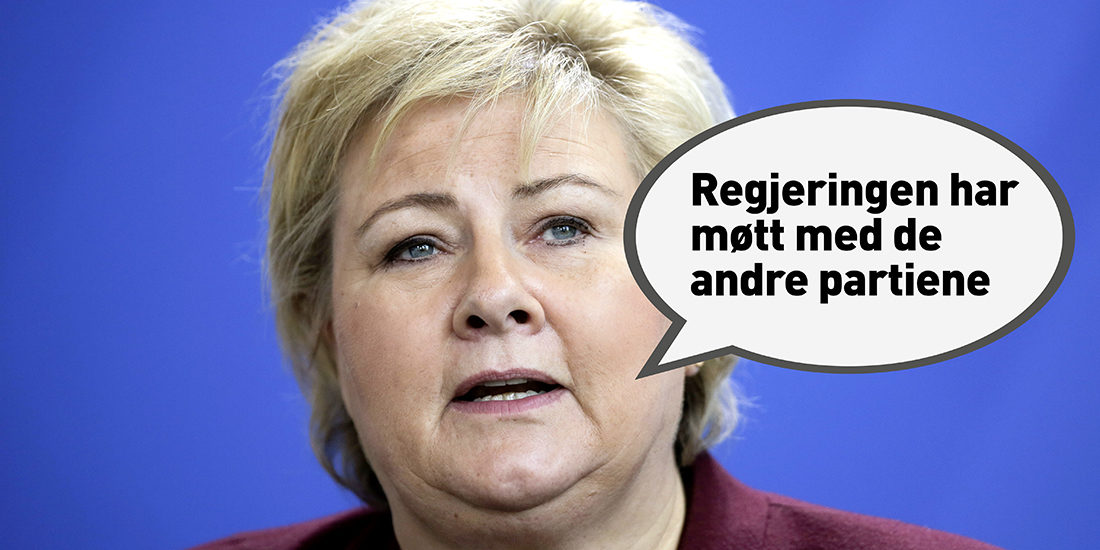English sneaks its way into Norwegian grammar
English loan words are easy to recognize. It’s more challenging to see how English influences Norwegian expressions and grammar.
Assistant Professor Anne Mette Sunde was a language purist when she attended high school in Kirkenes. She was determined to protect the Norwegian language from undue interference from English.
“I look at things a little differently today,” says the language researcher.
“Language is constantly changing, and we have to accept that. Now we’re witnessing Norwegian changing at a faster pace than before.”
Norwegian clothing stores have long used “sale” signs and our neighbours still go on “weekend trips.” The drama series “Skam” (Shame) filled the vocabulary of Norwegian adults with expressions like “ditch(e)” and “fuckboy.” Direct English loan words like these are easy to distinguish.
For her doctoral dissertation at NTNU’s Department of Language and Literature, Sunde has studied how English is changing Norwegian in ways that are a little harder to detect.

In her doctoral thesis, Anne Mette Sunde has studied how English has changed Norwegian in ways that are a little harder to detect. Photo: DMMH
Anglicization is the term for when English influences another language.
Loan words – and changed meanings
“Sometimes we borrow the meaning of English words and use them in Norwegian. In Norwegian, we are used to the word opsjon meaning pre-emption right, such as in having the first option to purchase a share. But sometimes the word is used with the meaning of ‘alternative’, or ‘choice,’ as in the sentence ‘Sensur er ingen opsjon.’ The change is probably due to the influence of the English meaning of option,” Sunde says.
- You might also like: Mystery in the bear cave
Borrowing entire phrases
In an interview on NRK’s morning news, Norwegian prime minister Erna Solberg said, “Regjeringen har møtt med de andre partiene.” No loan words are involved, but the sentence still pains many a Norwegian ear.
In traditional Norwegian, the prime minister would have “møtt de andre partiene” (met the other parties). “Møte med” is a direct translation of “meet with,” which Solberg’s colleague Theresa May would say if she wanted to talk to Labour or Liberal Democrats in Parliament.

The Norwegian language is changing. The younger generation can talk to their age peers about “bingeing” a television series. Illustration photo: Colourbox
It is often obvious when Norwegians use direct loan words from English. Teenagers can talk to their age peers about “bingeing” a television series, but will probably use Norwegian words to tell Grandma about their plans to see a lot of episodes in succession.
It is more difficult to detect phrases like the one the prime minister used on the morning news show. Another expression that is becoming more common is “å stå ut,” in the sense of the English “to stand out.”
Sunde has found examples of Norwegian nouns taking the English plural ending -s, as in “ladestasjon til nettbretts,” (charging station for tablets), “videosnutts” (video clips) and many “forums.”
“Ringe inn syk” (calling in sick) to orient the workplace about one’s state of health is another. “Når det kommer til” is the Norwegian variant of the English “when it comes to (something),” although the traditional Norwegian “når det gjelder” is still more commonly used. Youth can talk about “å falle i forelskelse,” a literal translation of “falling in love.” The phrase “i min mening” (in my opinion) is an example of adopting the English preposition, which now competes with the Norwegian “etter min mening.”
Grammar on a downslide
Even grammar isn’t escaping the assault. The rule for what is allowed after a question word is being challenged. In the sentence, “jeg vet hva å gjøre” (I know what to do), the infinitive marker “å” (to) replaces the standard Norwegian construction of subject and auxiliary verb “jeg skal” (I shall).
In the question, “Forslag til hva å gjøre på date?” (Suggestions for what to do on a date?), “man kan” is being replaced by “å.”
The changed use of the indefinite article is another phenomenon that Sunde makes note of. Norwegian normally does not use the indefinite article in sentences such as “jeg vil bli lærer,” but increasingly often “jeg vil bli en lærer” can be heard, matching the English form “I want to be a teacher.”
English plurals
Sunde has found examples of Norwegian nouns taking the English plural -s, as in “ladestasjon til nettbretts,” (charging station for tablets), “videosnutts” (video clips) and many “forums” – a phenomenon that would no doubt have many an old Norwegian teacher turning in their graves.
“Academia is a good example of Norwegian being under severe pressure from English.”

Norwegian gamers often speak English when they play together. English can leave a strong imprint on Norwegian, even when the gamers are communicating with other Norwegian players. Illustration photo: Colourbox
Experts in the field disagree on whether it can be called a grammatical change, but Norwegian reflexive pronouns are certainly on the defensive, according to Sunde. Reflexive pronouns are typically used when the object is the same as the subject that precedes it, as in “I treated myself to a movie.” The Scandinavian languages and German use reflexive pronouns where English does not. The phrase “jeg kan relatere til det” (I can relate to that) lacks the traditional Norwegian reflexive “meg” (myself) after “relatere”. And in the sentence “la smøret avkjøle før du rører det inn” (let the butter cool before you mix it in) the reflexive “seg” (itself) is missing after ” avkjøle.”
Studying gamers
As part of her doctoral thesis, Sunde studied audio recordings of Norwegian gamers while they played Counter-Strike. These are people who often play with foreign players and use English a lot. The recordings showed that English figured strongly in Norwegian, even when gamers were communicating with other Norwegian players.
“Today, less than ten per cent of doctoral dissertations are written in Norwegian, and the amount of English-language curriculum and teaching is increasing.”
Another method used by Sunde was to incorporate English loan words into a Norwegian text. High school students thought the text sounded normal and natural, whereas a group of senior citizens thought it was bad Norwegian and sounded strange. This suggests that young people tend to be behind the language changes.
- You might also like: Thousand-year-old cathedral surrenders its secrets, stone by stone
English tsunami
But Sunde doesn’t believe that influences from English will bring about the demise of the Norwegian language.
“Language tolerates changes without dying out. English influences from radio, television, film and music have existed for a long time, but the pressure from English via the Internet, on social media and through games is new. The impact is huge and starts at a very young age,” she says.
Previously Norwegians absorbed English passively through television, whereas now Norwegians use English much more actively through communicating across borders on the internet, she said.
“A positive side effect of this is that young people are becoming very competent in English,” she said.
“De-Norwegianizing” of academia
Sunde worries more about what is called linguistic domain loss, if Norwegian is squeezed out of a social area.
“Academia is a good example – and parts of the business sector as well – where Norwegian is under severe pressure from English. Today, less than ten per cent of doctoral dissertations are written in Norwegian, and the amount of English-language curriculum and teaching is increasing. The Language Council of Norway is concerned about Norwegian playing an increasingly smaller role in academia and business,” says Sunde.


